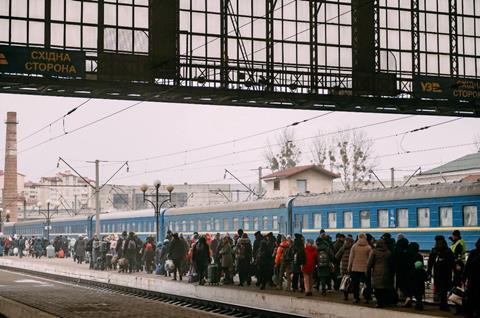
UKRAINE: ‘We are firmly against the use of railways in armed conflicts’, the Intergovernmental Organisation for International Carriage by Rail and the Organisation for Co‑Operation Between Railways said in a joint statement issued on March 21; it did not specifically mention Russia’s invasion of Ukraine.
The two multinational organisations provide legal frameworks to enable the operation of international rail services, with OTIF having members in Europe, Africa and the Middle East and OSJD traditionally representing the 1 520 mm region and connected countries. Russia and Ukraine are members of both, while Belarus is only a member of OSJD.
The joint statement issued on March 21 said: ‘We are deeply saddened by and regret the state of war between certain countries that are members of our organisations. We deplore the loss of human life and the suffering caused. The sovereignty, self-determination, independence and territorial integrity of every state must be respected.
‘We are fundamentally opposed to war as a tool for resolving contentious issues and we are firmly against the use of railways in armed conflicts. Railways should connect people, nations and countries, and contribute to their successful development.
‘The activities of our organisations are aimed at the development and improvement of international rail transport. We wish to express our strong support for decisions that promote peace, co-operation and dialogue.
‘In the spirit of Resolution A/RES/ES-11/1 of the UN General Assembly, especially pursuant to point 15 of the Resolution, we appeal for a cessation of hostilities and the resolution of the conflict exclusively through peaceful means. We are confident that all controversial issues can be resolved at the negotiating table, with the undoubted support of other countries and organisations in the region and the world. Only in this way can a solution be found that will stop the tragedy that war brings with it.
‘Each of us who work honourably for railway transport must adhere to international law and, on the basis of international co-operation and mutual respect, promote and support peace and economic development.
‘Let us act within our organisations in the name of co-operation for development and peace between our countries.’

















